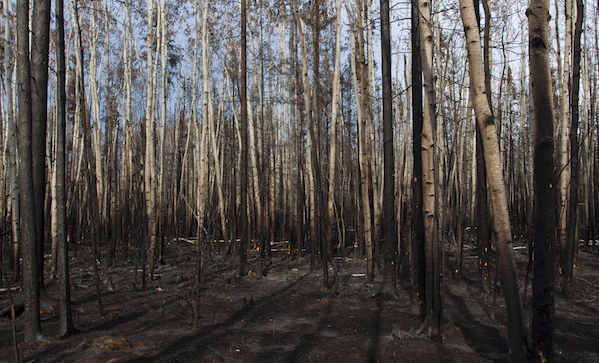When meeting with Canadian officials over land claims in the 1990s, a Gitksan elder asked, “If this is your land, where are your stories?” It’s a reasonable question—don’t the stories we tell about a place, in part, create a place? It’s doubtful that the elder had been reading Benedict Anderson; the elder merely understood that part of the glue joining disparate community members to their place are the stories we tell about the place.
Joseph Boyden’s The Orenda restores people to their place. In what is now Ontario and Quebec during the Beaver Wars of early seventeenth century, The Orenda is narrated by a Huron war leader named Bird, his adopted Iroquois daughter Snow Falls, and a French missionary named Christophe. However, the story amends and clarifies some of our understanding of the history that led to Canada, and my preceding sentence needs to be similarly amended and clarified.
Ontario and Quebec, of course, don’t exist yet in the time of The Orenda. There’s overlapping tribal territories and the European toehold of Samuel de Champlain’s fort, but no borders in the modern sense of the word. The phrase “Beaver Wars”, too, is imprecise: after all, the Huron/Iroquois conflict has to do with more than trade. Finally, the words Huron and Iroquois don’t really work here. The Huron call themselves Wendat, and the Iroquois are the Haudenosaunee. See? Writing about history is always precarious; it’s fortunate that Boyden is a guide sure-footed enough to take us through history, but cautious enough to speak with multiple voices.
By jumping between three characters of three different cultures, Boyden carves sharp contrast and throws into relief misunderstandings. Both Snow Falls, captured and adopted by Bird, and Christophe, deployed by his superiors, experience Wendat civilization (which is meticulously researched and richly rendered) for the first time simultaneously—and of course, they draw different impressions. The process cuts two other ways as well, with Bird and Snow Falls fumbling towards a tenuous understanding of the French, Bird and Christophe growing to respect—if never make peace with—the Haudenosaunee. Perhaps Canadians are still approaching an understanding of each other. Perhaps The Orenda is a step in that approach.
I only belatedly realized that The Orenda is the last second book in a thematic trilogy, preceded by The Three Day Road and Through the Black Spruce. They aren’t It isn’t necessary to enjoy or understand The Orenda, but I’ve added them it to my list—and I’m torn between devouring them it now or saving them it for a moment when I’ll need a reliable book. Sooner is probably better, though—because if this is indeed our land, we ought to know our stories.
(Correction: a previous reversion of the article referred to The Orenda as the third book in a trilogy. It is the second. We regret the error.)
Dave Robson is the editor of DailyXY. He spends his time reading books, drinking Scotch, and smoking cigars.
Photo courtesy of Scott Lough.
During last year’s Canada Reads, panellist Charlotte Grey suggested that the eventual winner, Lisa Moore’s February, would be rejected by male readers due to the lack of a strong male protagonist. We disagreed with the assessment then, just as we disagree with the idea now that men will only read a certain kind of book or certain kind of character by default. That’s why, this year, we reviewed all five Canada Reads selections, operating under the assumption that men are more literate than Charlotte Grey is willing to consider. Also check our our reviews of Annabel, by Kathleen Winter, Half-Blood Blues, by Esti Edugyan, Cockroach, by Rawi Hage, and The Year of the Flood, by Margaret Atwood.


